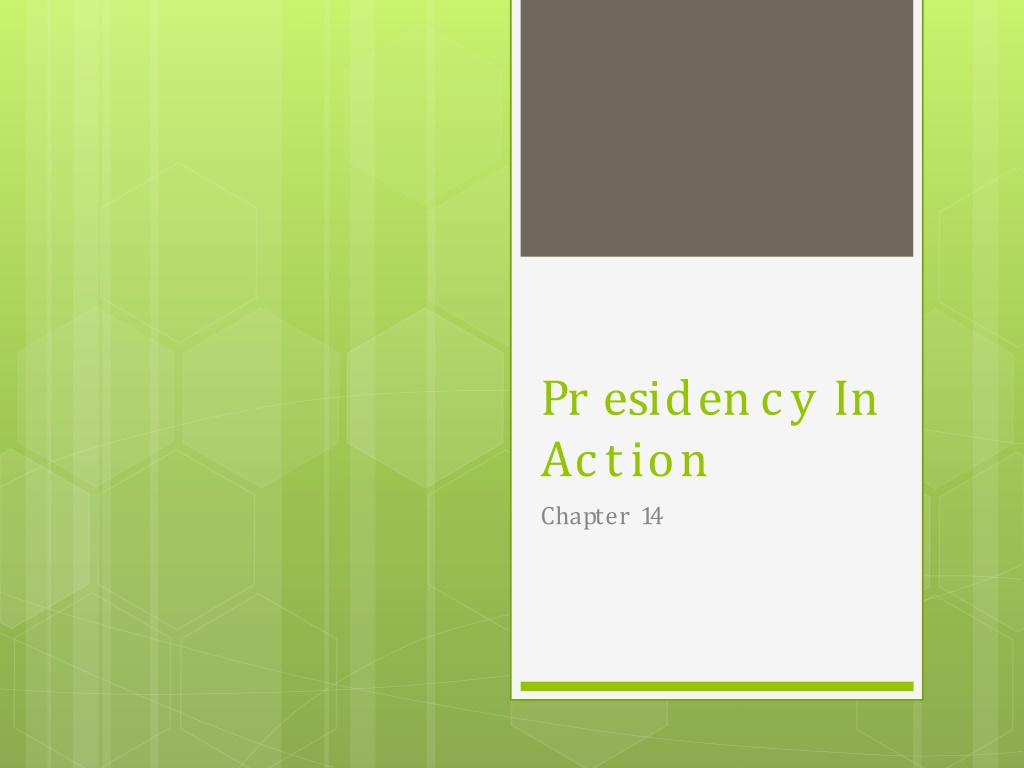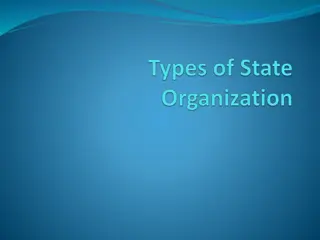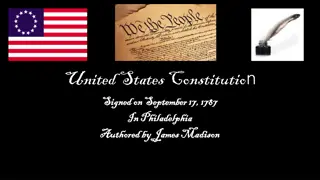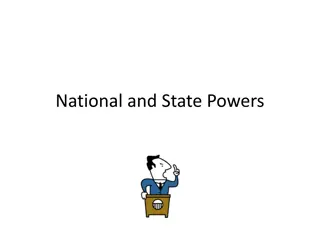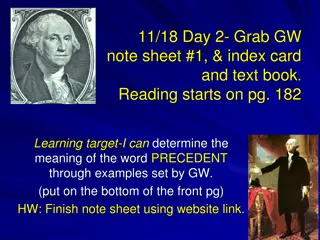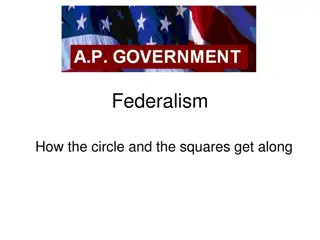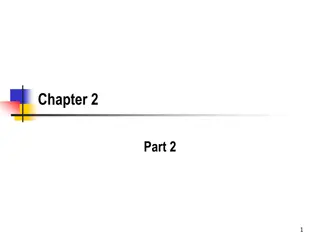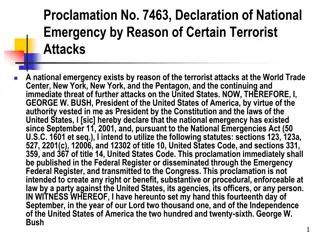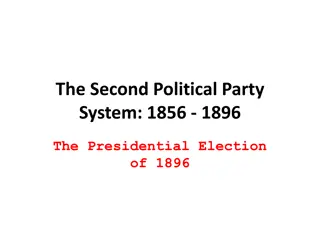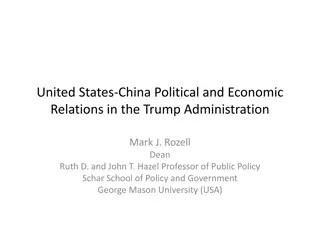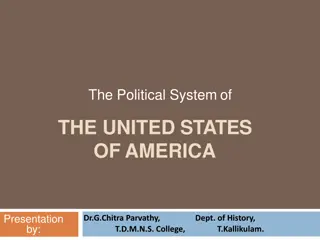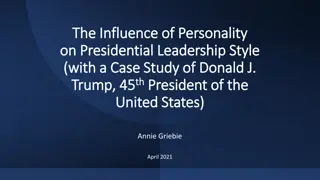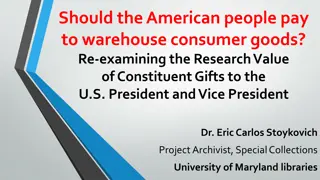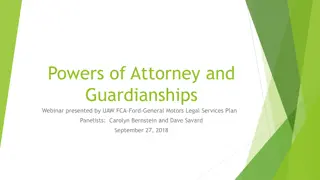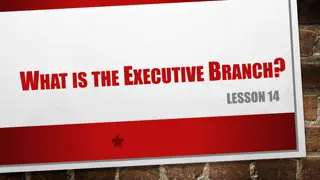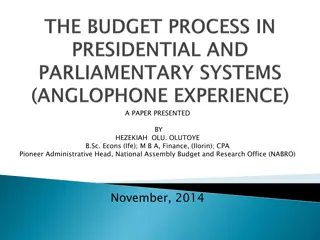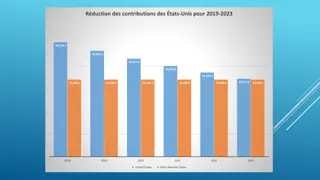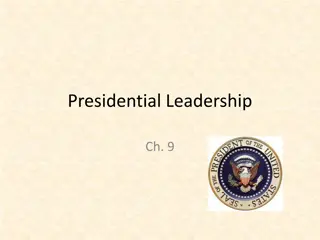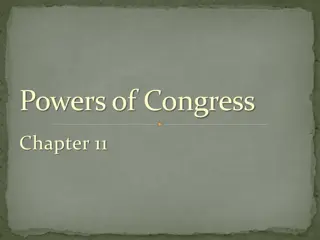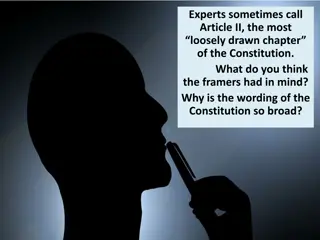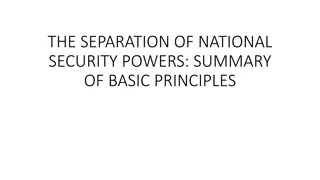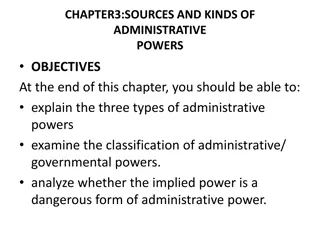Understanding Presidential Powers in the United States
The content discusses various powers of the President of the United States, including oath of office, executive orders, appointment power, removal power, diplomatic and military powers, treaties and agreements, commander-in-chief role, and legislative and judicial powers. It covers aspects like making laws, appointing officials, foreign relations, war powers, and legislative interactions. The President's authority and responsibilities outlined in the Constitution shape their governance and decision-making abilities.
Download Presentation

Please find below an Image/Link to download the presentation.
The content on the website is provided AS IS for your information and personal use only. It may not be sold, licensed, or shared on other websites without obtaining consent from the author. Download presentation by click this link. If you encounter any issues during the download, it is possible that the publisher has removed the file from their server.
E N D
Presentation Transcript
Pr esidency In Action Chapter 14
Oa th of Of f ice I do solemnly swear that I will faithfully execute the Office of President of the United States, and will to the best of my Ability preserve, protect and defend the Constitution of the United States
Executive Or der s Directive, rule, or regulation that has the effect of law. Presidents power to make law, circumventing Congress.
Appointment Power Article II, Sec 2, Clause 2 President appoints key gov t positions with the consent of Congress. Recess Appointments President can appoint jobs during Congressional recess (lasts only a year)
Remova l Power The President has the power to remove appointed officials from office (exception federal judges) Hotly debated over time Andrew J ohnson
Dipl oma tic a nd M il ita r y Power s
Tr ea ties, Executive Agr eements & Power of r ecognition Treaty formal agreement between two or more sovereign states. President / Sec. of State generally negotiate these deals. Senate must approve by 2/3 vote. Executive Agreement deal struck between two heads of state no Senate approval needed. Power of Recognition President recognizes the legitimacy of a nation by accepting their diplomats.
Comma nder in Chief War Powers Resolution President is the supreme commander of the US Military. Only Congress can officially declare war. Presidents since J ohn Addams have been sending troops abroad without Congressional consent.
Legisl a tive a nd Judicia l Power s
Legisl a tive Power s President can not recommend a bill on the floor of either House. The President uses message power to recommend legislation. State of the Union
Legisl a tive Power s Veto Power the power vested in the President to reject proposed legislation. It takes a 2/3 vote to overturn a veto. Line-Item Veto the power to reject certain parts of a bill. The President does not have this power!!!!
Judicia l Power s Reprieve postponement of the execution of a sentence. Pardon legal forgiveness of a crime. Clemency mercy, may only be used in cases involving federal offenses. Amnesty power to pardon an entire group of people
